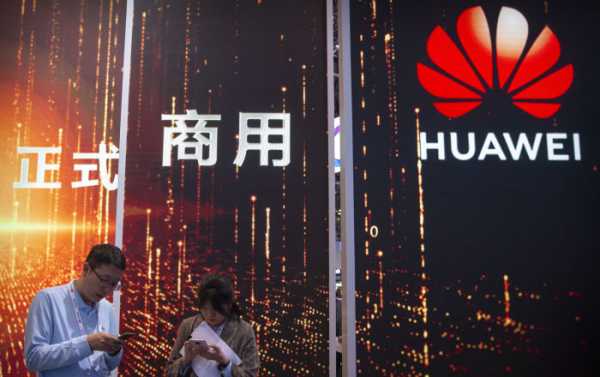
US companies will be allowed to cooperate with Huawei in the development of 5G standards, according to new rules from the Department of Commerce. It has been reported that the new measure is not a step towards easing things for the Chinese company, but is only aimed at maintaining the competitiveness of American producers.
Not only businessmen, but even some US politicians, including anti-Chinese hawks such as Marko Rubio and Tom Cotton, have expressed concern that Huawei’s blacklisting could have a negative impact on American companies.
They sent a letter to the Department of Commerce, Department of State, and the Pentagon in which the senators stressed the need to develop legislation that would ensure US participation in the development of world standards for 5G.
They also drew the attention of the Commerce Department to the fact that sanctions against Chinese companies should not prevent the United States from taking a leading position in developing international technology standards.
US companies have refused to engage with any Chinese partners to avoid secondary sanctions following Huawei’s blacklisting last year. The tough rules from the Department of Commerce were aimed precisely at limiting the transfer to China of any American technology and other intellectual property. However, the development of international standards involves the disclosure of information about technology.
Therefore, cooperation between US and Chinese companies in the field of developing standards has effectively been suspended.
So it turns out that it wasn’t Chinese companies that were affected, but American enterprises. Meanwhile, China holds a firm position in international standardisation organisations.
In less than 10 years, the number of representatives from China in the secretariats of the technical committees of the International Organisation for Standardisation (ISO) has increased by 73%. The number of Chinese companies participating as voting members in 3GPP, which deals with specifications for mobile telephony, has now reached 110.
That’s more than twice the number of US voting members. China heads four specialised UN agencies: FAO, ICAO, ITU, and the UN Department of Economic and Social Affairs. At the same time, no other country heads more than one specialised UN organisation.
Therefore, the termination of cooperation with China has only led to the exclusion of the US from the global standards development processes, including those of 5G networks. At present, Chinese companies own about 35% of all 5G patents. However, American companies account for only 13% of patents.
The fact that the US has allowed its companies to cooperate in the development of standards with China’s Huawei means that global telecommunications of the 5th generation can no longer be established without China’s participation, Professor Thomas Canhao Xu from the School of Computer Science and Technology at Soochow University told Sputnik.
There have been cases when the US has adopted other standards, including in the area of mobile communications. For example, Europe adopted the GSM 900/1800 standard, and the US – GSM 850/1900.
Furthermore, US mobile providers have been actively developing the CDMA standard for a long time, which was almost immediately superseded by GSM in Europe.
However, in 5G networks, which should provide not only mobile communication, but also give a qualitative leap to the development of related industries, such as the Internet of Things, augmented reality, self-driving cars, and artificial intelligence, the harmonisation of standards is the key to the successful development of global digitalisation.
China, for its part, is ready for international cooperation even in areas where it has competence. For example, China Unicom has given Nokia the opportunity to build about 10% of its 5G root networks, even though Chinese tech giants, Huawei and ZTE, can provide competitive solutions in this field and their equipment is applied in the development of 5G networks worldwide.
Nevertheless, the process of building 5th generation networks is a global task and no country will be able to successfully tackle it alone, expert Thomas Canhao Xu said.
The US seems to have finally started to realise this. According to the US Department of Commerce, those companies that before Huawei’s blacklisting could share their technology and other intellectual property with the company without any licenses can now freely cooperate with the Chinese tech giant once again, but only in order to form international standards.
The Department of Commerce notes that the US intends to maintain its global technological leadership in new generation networks. However, for the time being, Washington is overdue. China plans to build 600,000 5G base stations by the end of 2020.
Meanwhile, according to the calculations of the analytical company Bernstein Research, the US will at best build 10,000 such base stations by the same time.
Sourse: sputniknews.com






